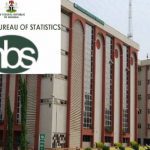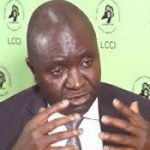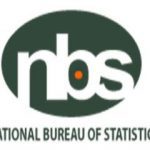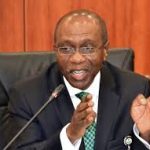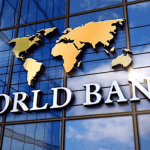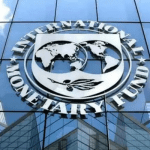For Nigeria to increase it’s Gross Domestic Products to a trillion dollars as projected by President Bola Ahmed Tinubu, it must increase investments in electricity supply across the country.
This is according to the minister of power, Adebayo Adelabu at the ongoing retreat of the power sector on the integrated national electricity policy and strategic implementation.
The agenda of the retreat is to ensure that both federal and state government are brought together in the coverage and distribution of electricity.
As at 2022 , 70.5% of the grid electricity is generated by thermal plants, 27.3% from hydro, whilst solar and other power plants made up 2.2%.
As Nigeria ramps up capacity to generate more electricity through renewable means such as solar, hydro, wind, bioenergy and others 98% of the feedstock powering electricity generation in the country are transition or clean fuels.
A major issue in the sector, identified at this gathering is the pricing of gas utilized by GenCos in forex, a huge variable that significantly affects the pricing of electricity to end-users.
A more preferable option that was suggested is to ensure that the gas utilized by the GenCos is traded in Niara so as to better manage the foreign currency related inflation trends that challenge the application of the Multi-Year Tariff Order (MYTO) methodology.
Due to underperformance the Transmission Company of Nigeria will also be unbundled.
For Nigeria to increase it’s Gross Domestic Products to a trillion dollars as projected by President Bola Ahmed Tinubu, it must increase investments in electricity supply across the country.
This is according to the minister of power, Adebayo Adelabu at the ongoing retreat of the power sector on the integrated national electricity policy and strategic implementation.
The agenda of the retreat is to ensure that both federal and state government are brought together in the coverage and distribution of electricity.
As at 2022 , 70.5% of the grid electricity is generated by thermal plants, 27.3% from hydro, whilst solar and other power plants made up 2.2%.
As Nigeria ramps up capacity to generate more electricity through renewable means such as solar, hydro, wind, bioenergy and others 98% of the feedstock powering electricity generation in the country are transition or clean fuels.
A major issue in the sector, identified at this gathering is the pricing of gas utilized by GenCos in forex, a huge variable that significantly affects the pricing of electricity to end-users.
A more preferable option that was suggested is to ensure that the gas utilized by the GenCos is traded in Niara so as to better manage the foreign currency related inflation trends that challenge the application of the Multi-Year Tariff Order (MYTO) methodology.
Due to underperformance the Transmission Company of Nigeria will also be unbundled.
For Nigeria to increase it’s Gross Domestic Products to a trillion dollars as projected by President Bola Ahmed Tinubu, it must increase investments in electricity supply across the country.
This is according to the minister of power, Adebayo Adelabu at the ongoing retreat of the power sector on the integrated national electricity policy and strategic implementation.
The agenda of the retreat is to ensure that both federal and state government are brought together in the coverage and distribution of electricity.
As at 2022 , 70.5% of the grid electricity is generated by thermal plants, 27.3% from hydro, whilst solar and other power plants made up 2.2%.
As Nigeria ramps up capacity to generate more electricity through renewable means such as solar, hydro, wind, bioenergy and others 98% of the feedstock powering electricity generation in the country are transition or clean fuels.
A major issue in the sector, identified at this gathering is the pricing of gas utilized by GenCos in forex, a huge variable that significantly affects the pricing of electricity to end-users.
A more preferable option that was suggested is to ensure that the gas utilized by the GenCos is traded in Niara so as to better manage the foreign currency related inflation trends that challenge the application of the Multi-Year Tariff Order (MYTO) methodology.
Due to underperformance the Transmission Company of Nigeria will also be unbundled.
For Nigeria to increase it’s Gross Domestic Products to a trillion dollars as projected by President Bola Ahmed Tinubu, it must increase investments in electricity supply across the country.
This is according to the minister of power, Adebayo Adelabu at the ongoing retreat of the power sector on the integrated national electricity policy and strategic implementation.
The agenda of the retreat is to ensure that both federal and state government are brought together in the coverage and distribution of electricity.
As at 2022 , 70.5% of the grid electricity is generated by thermal plants, 27.3% from hydro, whilst solar and other power plants made up 2.2%.
As Nigeria ramps up capacity to generate more electricity through renewable means such as solar, hydro, wind, bioenergy and others 98% of the feedstock powering electricity generation in the country are transition or clean fuels.
A major issue in the sector, identified at this gathering is the pricing of gas utilized by GenCos in forex, a huge variable that significantly affects the pricing of electricity to end-users.
A more preferable option that was suggested is to ensure that the gas utilized by the GenCos is traded in Niara so as to better manage the foreign currency related inflation trends that challenge the application of the Multi-Year Tariff Order (MYTO) methodology.
Due to underperformance the Transmission Company of Nigeria will also be unbundled.
For Nigeria to increase it’s Gross Domestic Products to a trillion dollars as projected by President Bola Ahmed Tinubu, it must increase investments in electricity supply across the country.
This is according to the minister of power, Adebayo Adelabu at the ongoing retreat of the power sector on the integrated national electricity policy and strategic implementation.
The agenda of the retreat is to ensure that both federal and state government are brought together in the coverage and distribution of electricity.
As at 2022 , 70.5% of the grid electricity is generated by thermal plants, 27.3% from hydro, whilst solar and other power plants made up 2.2%.
As Nigeria ramps up capacity to generate more electricity through renewable means such as solar, hydro, wind, bioenergy and others 98% of the feedstock powering electricity generation in the country are transition or clean fuels.
A major issue in the sector, identified at this gathering is the pricing of gas utilized by GenCos in forex, a huge variable that significantly affects the pricing of electricity to end-users.
A more preferable option that was suggested is to ensure that the gas utilized by the GenCos is traded in Niara so as to better manage the foreign currency related inflation trends that challenge the application of the Multi-Year Tariff Order (MYTO) methodology.
Due to underperformance the Transmission Company of Nigeria will also be unbundled.
For Nigeria to increase it’s Gross Domestic Products to a trillion dollars as projected by President Bola Ahmed Tinubu, it must increase investments in electricity supply across the country.
This is according to the minister of power, Adebayo Adelabu at the ongoing retreat of the power sector on the integrated national electricity policy and strategic implementation.
The agenda of the retreat is to ensure that both federal and state government are brought together in the coverage and distribution of electricity.
As at 2022 , 70.5% of the grid electricity is generated by thermal plants, 27.3% from hydro, whilst solar and other power plants made up 2.2%.
As Nigeria ramps up capacity to generate more electricity through renewable means such as solar, hydro, wind, bioenergy and others 98% of the feedstock powering electricity generation in the country are transition or clean fuels.
A major issue in the sector, identified at this gathering is the pricing of gas utilized by GenCos in forex, a huge variable that significantly affects the pricing of electricity to end-users.
A more preferable option that was suggested is to ensure that the gas utilized by the GenCos is traded in Niara so as to better manage the foreign currency related inflation trends that challenge the application of the Multi-Year Tariff Order (MYTO) methodology.
Due to underperformance the Transmission Company of Nigeria will also be unbundled.
For Nigeria to increase it’s Gross Domestic Products to a trillion dollars as projected by President Bola Ahmed Tinubu, it must increase investments in electricity supply across the country.
This is according to the minister of power, Adebayo Adelabu at the ongoing retreat of the power sector on the integrated national electricity policy and strategic implementation.
The agenda of the retreat is to ensure that both federal and state government are brought together in the coverage and distribution of electricity.
As at 2022 , 70.5% of the grid electricity is generated by thermal plants, 27.3% from hydro, whilst solar and other power plants made up 2.2%.
As Nigeria ramps up capacity to generate more electricity through renewable means such as solar, hydro, wind, bioenergy and others 98% of the feedstock powering electricity generation in the country are transition or clean fuels.
A major issue in the sector, identified at this gathering is the pricing of gas utilized by GenCos in forex, a huge variable that significantly affects the pricing of electricity to end-users.
A more preferable option that was suggested is to ensure that the gas utilized by the GenCos is traded in Niara so as to better manage the foreign currency related inflation trends that challenge the application of the Multi-Year Tariff Order (MYTO) methodology.
Due to underperformance the Transmission Company of Nigeria will also be unbundled.
For Nigeria to increase it’s Gross Domestic Products to a trillion dollars as projected by President Bola Ahmed Tinubu, it must increase investments in electricity supply across the country.
This is according to the minister of power, Adebayo Adelabu at the ongoing retreat of the power sector on the integrated national electricity policy and strategic implementation.
The agenda of the retreat is to ensure that both federal and state government are brought together in the coverage and distribution of electricity.
As at 2022 , 70.5% of the grid electricity is generated by thermal plants, 27.3% from hydro, whilst solar and other power plants made up 2.2%.
As Nigeria ramps up capacity to generate more electricity through renewable means such as solar, hydro, wind, bioenergy and others 98% of the feedstock powering electricity generation in the country are transition or clean fuels.
A major issue in the sector, identified at this gathering is the pricing of gas utilized by GenCos in forex, a huge variable that significantly affects the pricing of electricity to end-users.
A more preferable option that was suggested is to ensure that the gas utilized by the GenCos is traded in Niara so as to better manage the foreign currency related inflation trends that challenge the application of the Multi-Year Tariff Order (MYTO) methodology.
Due to underperformance the Transmission Company of Nigeria will also be unbundled.



